Antisemitism is Jew-hatred. It has taken many forms over the centuries. It may include intimidation, killing, discrimination, persecution and degradation of Jews. It can include the covert and overt denial of Jews to have an inalienable right to practice their religion, assemble as communities or engage in self-determination. Anti-Zionism is antisemitism when Jews are denied the right to establish and sustain a Jewish national territory as a sovereign Jewish state. Thus, those who embrace anti-Zionism or anti-Israelism (the right of Jews to have a state) are practicing antisemitism.
Articulating views that oppose this or that policy of any government are perfectly legitimate criticisms that should and must be made, but such views must exclude advocating for the destruction of a state because it engaged in actions or policies that are considered wrong and not in keeping with specific values or ethics. When January 6, 2021, unfolded in the United States, did those who supported those acts for or against the proper counting of the electoral vote advocate the destruction of the United States?
Those who deny the inalienable Jewish right to self-determination or deny Jews the right to have a state of their own are practicing antisemitism. This arc of discrimination stretches from subtle abuse, including denial of earned place and open verbal attacks, to direct acts that aim at killing Jews and seek Israel’s destruction.
Conversations, policy choices and speeches that speak about antisemitism, from Herzl to Hamas and Hezbollah, are examples listed here. The listing of original sources is of course by no means exhaustive.
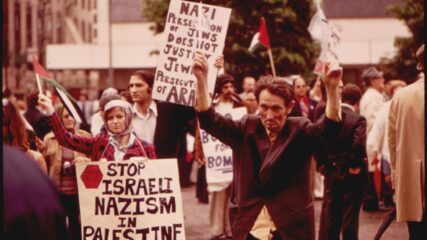
By Scott Abramson, May 2024 Introduction — A Unique Hatred If the Bible nearly 3,000 years ago described the Jews as “a people who shall dwell alone,” Jewish history has since validated this as prophecy….

Among Palestinians, Hamas popularity soars, two state solution at lowest ebb, Rise in European Anti-semitism, and Michael Mihlstein’s insightful analysis an essential read.
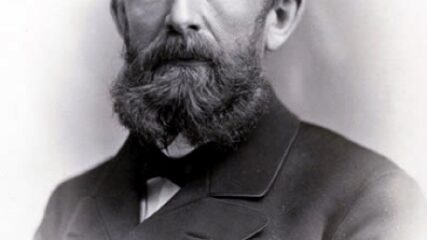
Major motivations for some Jews to choose Zionism included their failure to gain civic equality with their non-Jewish neighbors, and increasing outbreaks of rampant anti-Semitism. This account of the miserable economic situation of Jews in eastern Europe was another impetus for Jews to change their economic, political, and social condition through immigration.
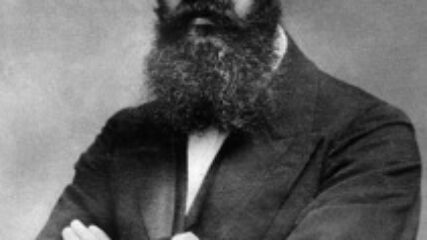
Eventual founding leader of the World Zionist Organization Theodor Herzl says a Jewish state is need in response to antisemitism.
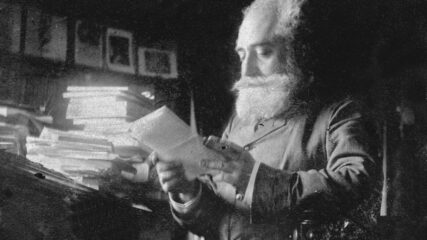
Max Nordau’s impassioned speech summarizes the unique Jewish identity of belief, Torah, ritual and community. With those central elements as a people, their state of impoverishment and wretched physical insecurity, he argues, are vital for rebuilding the Jewish national territory.
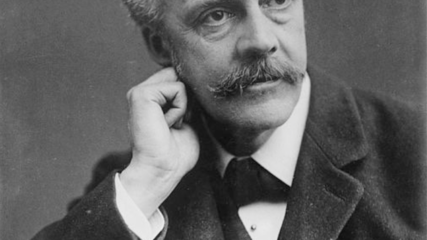
The British Foreign Ministry promises to work toward a Jewish national home in Palestine with no harm to non-Jewish populations or to Jews living elsewhere who might want to support a Jewish home.
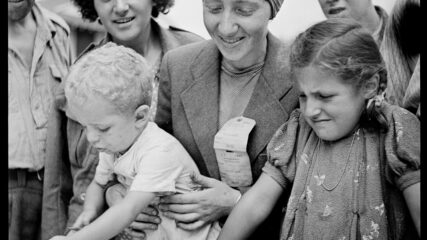
“Wilbur Carr, the Imperial State Department, and Immigration: 1920-1945” © Copyright 2011 by Kathy Warnes. All Rights Reserved. kathywarneswriter.weebly.com, kathywarnes@gmail.com The State Department, as it evolved in the first four decades of the 20th century…
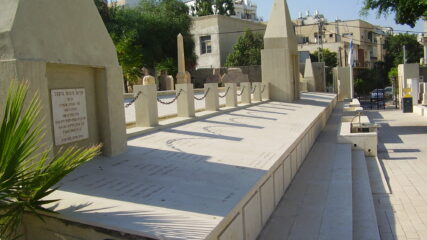
In early May 1921, communal riots unfolded in the city of Jaffa and at Jewish settlements along the coast, with considerable loss of life and property for both communities. The British decide that both Arabs and Jews had real as well as exaggerated fears of the other.
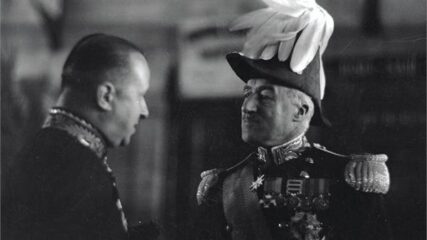
Palestine’s High Commissioner Chancellor seeks to halt the Jewish National Home in favor of the Arabs. He fails to overcome the Zionist drive and Arab unwillingness to cooperate with his intentions.
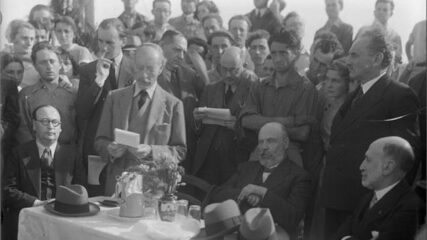
Five Arab political parties sent a memorandum of protest to the British asking for a halt to Jewish immigration, a stoppage in Arab land sales to Jews,and a measure of self-determination. The British did not change their policies in these three areas. In 1939, they did severely limit Jewish land purchases and severely curtailed Jewish immigration.
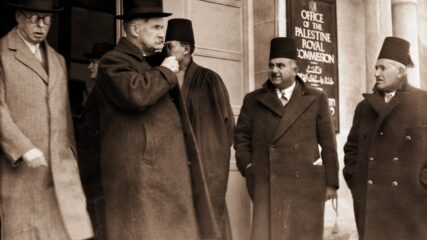
After outbreak of communal violence, the British investigatory committee suggests partition of Palestine, seeking to create two states for two peoples.
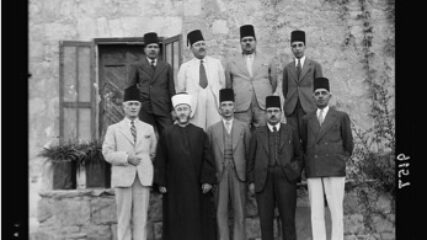
Mufti opposes Arab majority state in ten years contrary to wishes of a dozen key other Palestinian leaders. Mufti wants no Jewish political presence in Palestine whatsoever.
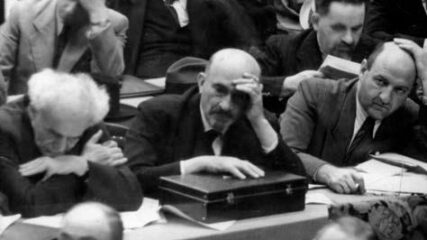
Zionist leaders—David Ben-Gurion, Chaim Weizmann and Eliezer Kaplan—learning of the British intent to limit severely the Jewish national home’s growth. Increasingly, they are also aware of the German government’s hostilities towards European Jewry.
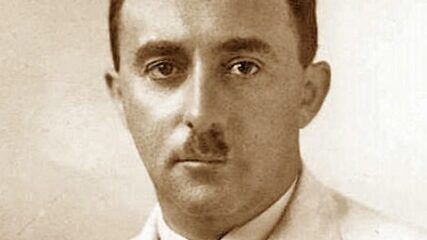
Moshe Sharett urges the British and Americans to open Palestine to unimpeded Jewish immigration from Europe.

From the beginning of the Palestine Mandate in 1920, Arabs in Palestine opposed Zionism; Arab states and leaders joined the opposition to Zionism in the 1930s. After WWII, Arab states were vehement in their opposition to Zionism, though the merits of their arguments were genuine, Arab leaders were more interested in controlling the land of Palestine than in the Palestinians themselves.

The head of Arab League says Palestine may be lost in a confrontation with the Zionists, but emphatically states that war is the Arab’s only option.
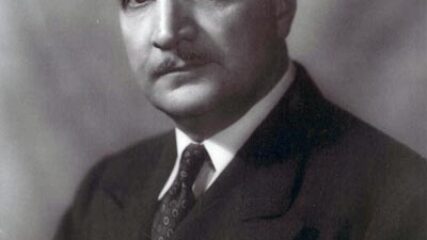
Loy Henderson, Director of the Office of Near Eastern and African Affairs, U.S. State Department, to U.S. Secretary of State George Marshall
Writing two months before the U.S. voted at the United Nations in favor of Palestine’s partition into Arab and Jewish states, Henderson voices profound dislike for Zionism and a Jewish state. He advocates for cultivating positive relations with Muslim and Arab states. He is one of many at the State Department at the time who saw Zionism as contrary to American national interests.
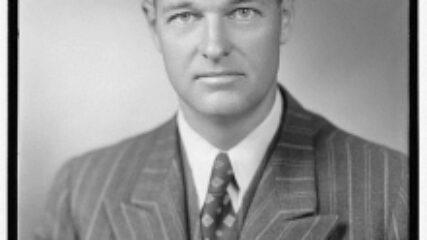
In March 1948, two months before Israel’s establishment, the US State Department sought to reverse the US vote in favor of partition for the creation of Arab and Jewish states in Palestine.
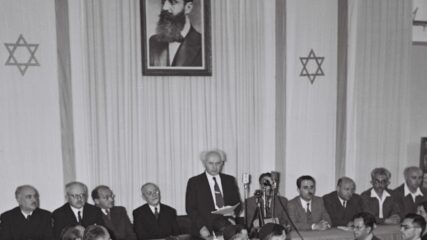
The Declaration recounts the Jewish connection to the Land of Israel, the birth of Zionism and U.N. recognition of a Jewish state’s legitimacy. It also promises that the state will be a democracy for all its citizens.
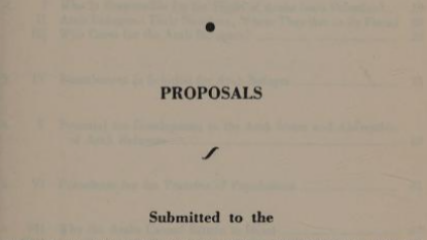
This report submitted to the United Nations at the end of 1951 notes that “some one million Jews have become the victims of accelerated antiSemitism” since 1948 in the Muslim countries of the Arab League and North Africa, “communities which have existed for thousands of years.” The report analyzes the situation for Jews overall and explains restrictions and oppressive measures country by country.
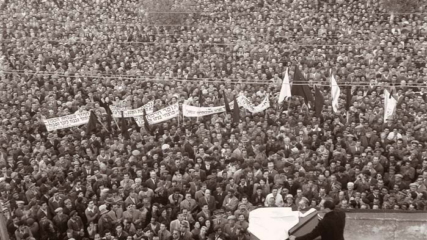
In an impassioned Knesset speech, Menachem Begin staunchly opposes accepting $1.5 billion in German reparations for Jewish deaths during WWII. No price, he believes, can be put on the lives lost.

Ben-Gurion elegantly connects modern Israel from messianic redemption to Zionism, building the country through labor and immigration, with dual needs to remain actively linked to the Jewish diaspora and Jewish values through education.
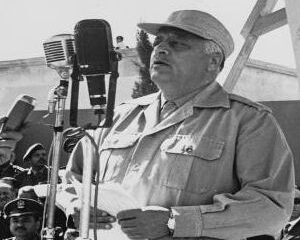
Palestine Liberation Organization seeks Israel’s destruction through armed struggle. It retains this stated policy until December 1988.

Egyptian President Gamal Abdel Nasser asserts that the conflict with Israel is not over access to the Gulf of Aqaba but the very existence of Israel; Egypt’s foes are Britain and the United States, which support Israel.























